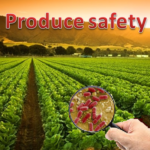anoopenv
ruth
In its second annual report published by the US PIRG Education Fund, the authors Karthikeyan & Garber looked at recall trends since the implementation of FSMA. The research showed a significant increase in USDA regulated number of recalls from 2013 to 2017. Recalls due to the most hazardous Class 1 meat and poultry increased by 83%, while the overall recall increased by 67%. Beef recalls increased by 55%, pork by 67%, and poultry recalls increased the most at 70% from 2013 to 2018. In contrast the recalls of produce and processed food increased only by 2% since 2013. The data...
Harika
Conference Sessions & TracksSustainable AgriculturePlant Fertilization and ProtectionPostharvest Physiology and TechnologyVeterinary Science and EntomologyTechnology of Animal FoodsWaste and Water ManagementAgriculture Economics and AgribusinessFood Processing and Packaging TechnologiesFood Science and TechnologyGlobal Food Loses and Food WasteAgriculture & Food SecurityGenetically Modified FoodsSea Food Handling and SustainabilityAquacultureFish Hatchery & StockingAquaponicsFish PathologyMaricultureAquaculture and Fisheries ScienceIntegrated Multi-Trophic Aquaculture PostersAquaFish Innovation Lab PostersRecirculating Aquaculture Sustems For more details for abstract submission : https://foodtechnology.inovineconferences.com/abstract-submission.php
ruth
As we enter a new decade, the lingering question is how we can assure safe produce. The fresh produce industry has come under intense scrutiny in the past three years, due to several recent high profile outbreaks of romaine lettuce. Due to minimal processing and absence of thermal treatments before consumption, pathogenic bacteria on fresh produce are a particular concern. In the US, foodborne illnesses caused by pathogens in fresh produce account for 46% of the cases, compared with 22% attributed to meat and poultry, 20% to dairy and eggs, and 6% to fish and shellfish. Much emphasis has been...



